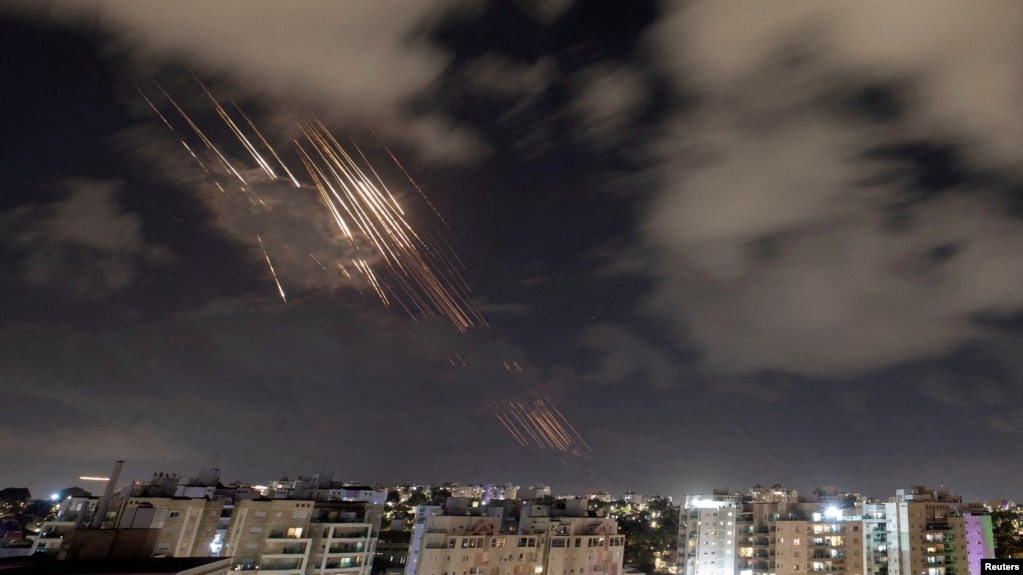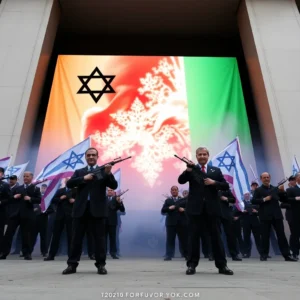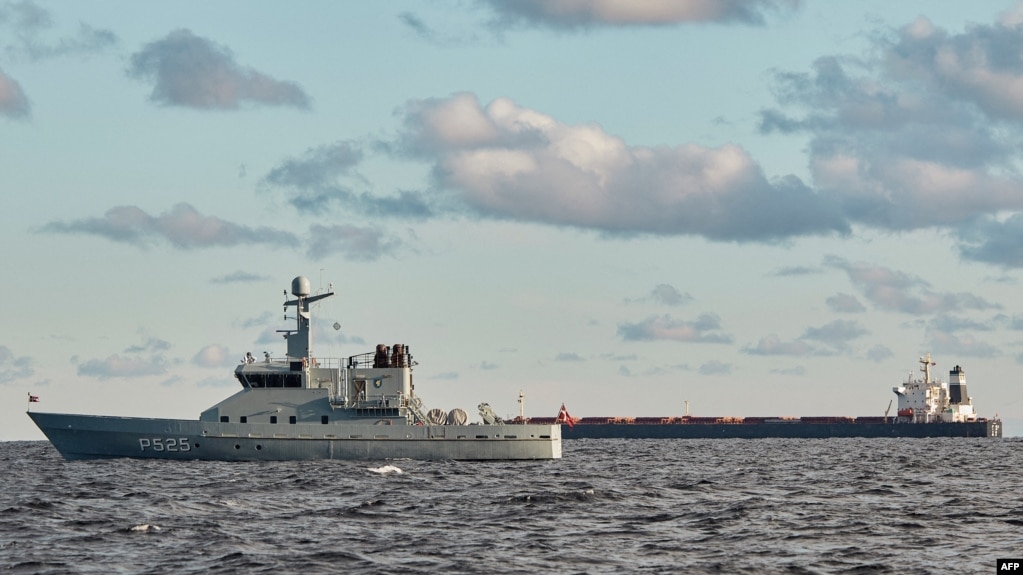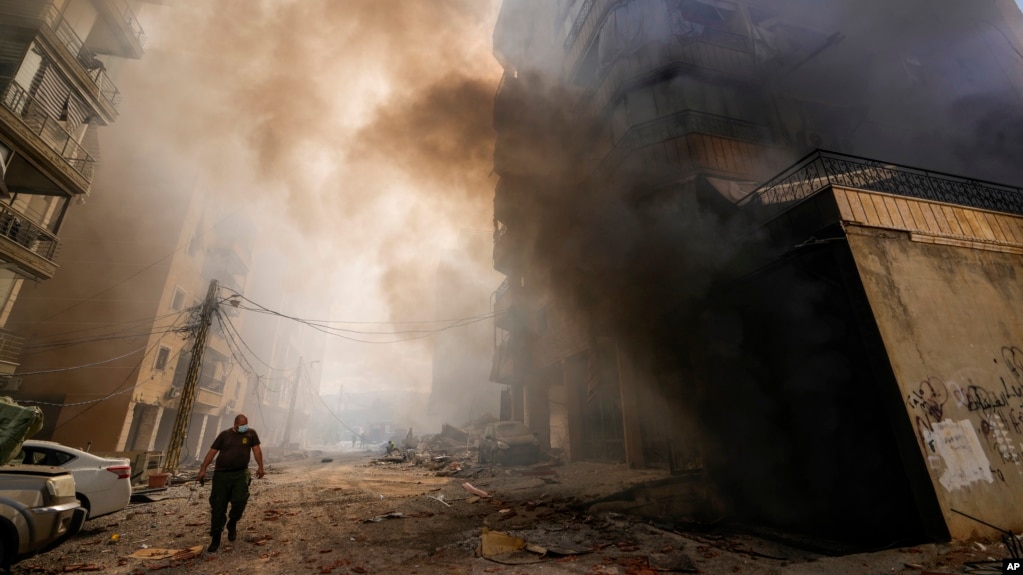How Israel will fight back against Iran is the key
Yes True Israel will fight back against Iran, In the early morning of October 2 (Wednesday) local time in Israel, Carice Witte, who lives about 35 kilometers north of Tel Aviv, Israel, was once again awakened from her sleep by the roar of rockets.
“This has become a very familiar sound now. It was flying very high, right over my head. I live not far north of Tel Aviv, so (the rocket) should have been flying north to deal with some targets in Lebanon
Wei Kaili’s feeling was not wrong. Israeli officials said that the Israeli army did bomb the southern suburbs of Beirut, the capital of Lebanon, in the early hours of Wednesday morning, carrying out more than a dozen air strikes on the headquarters of the Iranian-backed Hezbollah. Israel continued to bomb Beirut on Thursday (October 3). The Israeli army said that it killed 15 Hezbollah militants in combat operations against Hezbollah in southern Lebanon that day.
Since Iran launched more than 180 missiles at Israel at around 7:40 p.m. local time on October 1 (Tuesday), just before the Jewish New Year (Rosh HaShanah) on October 3, the world has been paying close attention to how Israel will respond to Iran’s attack. This will not only determine the direction of the Middle East conflict – will the war in the Middle East continue to escalate? In addition, it is also worrying whether the great power competition between Israel and Iran will cause global shocks.
Iran said the attack was in retaliation for a series of successful Israeli strikes against its proxies, including the assassination of Palestinian Hamas leader Ismail Haniyeh in Tehran in July and Lebanese Hezbollah leader Hassan Nasrallah in Beirut last week. However, most of the Iranian missiles were intercepted by the Israel Defense Forces and the U.S. Navy, as well as Jordan.
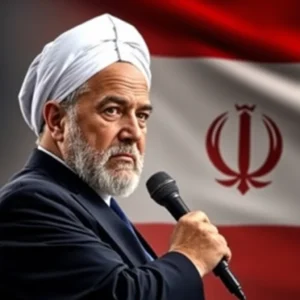
What will Israel do next: attack Iran’s nuclear facilities? Behead Iranian leaders?
Israeli military spokesman Rear Admiral Daniel Hagari said there would be “consequences” for what Iran did. On Wednesday, Israel said it was still considering how to respond.
Kaili Wei, founder and executive director of the Sino-Israel Global Network & Academic Leadership (SIGNAL), said she believed the Israeli authorities would respond in some way to Iran’s massive missile attack. She speculated that the Israeli authorities might “be patient” for a few days “so that we can have a quiet Jewish New Year.”
“For us, this is one of the most important holidays of the year,” she said with a tone of resignation and irony. “It’s good of Iran to launch these missiles last night instead of ruining our holiday at the end of the holiday on October 7 (last year) as Hamas did.”
Jonathan Schanzer, senior vice president for research at the Washington think tank Foundation for Defense of Democracies, speculated that possible counter-attack targets considered by Israel include both the obvious target of Iranian military facilities and the possibility of Israel taking radical actions such as direct “decapitation” operations against Iranian leaders.
“Israel will most likely attack regime infrastructure … (such as) intelligence services and possibly IRGC facilities,” Schanze told VOA. “I think that would be expected and consistent with the extent and scope of Iranian targeting inside Israel.”
Iran’s strikes on Israel caused no casualties, but a report in The Washington Post on Thursday (October 3) said the attacks did cause millions of Israelis to flee to shelters in panic, dealing them a powerful psychological blow. In addition, some shells did hit central and southern Israel.
Schanzer said the next target could be Iran’s energy industry facilities. “Israel would love to follow this path and launch an attack on the Islamic Republic’s Kharg Island energy (export) facilities – which of course is the lifeblood of the Iranian regime. This allows them (Iran) to fill their coffers and use it to fund terrorist organizations, ballistic missile programs, nuclear programs, everything.”

However, attacking Iran’s energy facilities is likely to cause a surge in international energy prices. It remains to be seen whether Israel is willing to bear the pressure of international condemnation.
Schanzer also said Israel may also be considering taking direct action against Iranian leaders, which he acknowledged would mark a major shift in Israeli strategy.
“As far as I know, they (Israel) have never attacked recognized world leaders, leaders of sovereign states. They often do not hesitate to attack leaders of terrorist organizations. But if they (attack) Iranian leaders, it will be a change for Israel,” he said.
Although U.S. President Joe Biden has signaled that he does not support Israel’s attack on Iran’s nuclear facilities, Shanze said that Iran’s nuclear facilities are still within Israel’s consideration range because there is a rare window of opportunity.
“I find it hard to believe that Israel would strike Iran without striking its nuclear program. I think in their eyes this would be a lost opportunity. They want to delay (Iran’s) nuclear program by months or even years, and seizing that opportunity would be very attractive to the Israelis,” he said.
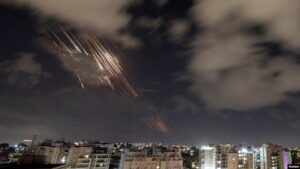
Has the Middle East war arrived?
In the days after Hamas attacked Israel on October 7 last year, there was particular concern about a regional war in the Middle East. Many feared that the conflict would not be limited to Gaza – Hezbollah would attack Israel from the north, the Houthis would attack from Yemen, and Iran’s proxies in Iraq would attack, and Israel would be forced to respond, it would come into direct conflict with Iran, and a wider war would befall the Middle East.
All this has happened nearly a year after the Hamas attack.
A CNN report on Tuesday said that the war in the Middle East has already begun, and the bigger question is whether it will continue to escalate or cool down?
Seth Cropsey, former U.S. Deputy Undersecretary of the Navy and founder of the Washington think tank Yorktown Institute, told VOA on Wednesday that Iran and Israel are not “on the brink of war” as some believe, but are “in the middle of a war,” but he does not believe the war will escalate.
“I think it’s unlikely to turn into an all-out war,” he said. “Hezbollah and Iran have suffered severe defeats in the past week, and I think you know what I mean. Pagers and walkie-talkies exploding, Hezbollah leaders being eliminated. The current limited (Israeli) ground incursion into southern Lebanon. These are all signs of Hezbollah weakness. Iran’s attempt to attack Israel with ballistic missiles yesterday was a complete failure.”
Cropsey believes Israel will take action because “they can’t let two massive missile attacks go by without a response.”
On April 13, in retaliation for a suspected Israeli attack on the Iranian consular building in Damascus, Syria, Iran launched nearly 120 ballistic missiles and 170 drones at Israel, causing minor damage to a military base in southern Israel. A few days later, on April 18, Israel attacked the Artesh Air Base in Isfahan, Iran, and destroyed part of the S-300 long-range air defense system.
Analysts believe that the attack did not weaken Iran’s military capabilities, but its precision served as a hidden threat while avoiding further escalation.
Cropsey believes that it would be very “helpful” if Israel decided to attack Iran’s nuclear facilities this time. “Imagine how Israel or any other country Iran chooses to attack would act if Iran had nuclear weapons. So these need to be removed,” he said.
Iran said Wednesday that its biggest offensive against Israel has ended without further provocations. But on Thursday, Iranian President Masoud Pezeshkian warned at the Asia Cooperation Dialogue summit in Doha that there can be no “silence” against Israel’s “belligerence.” “Any type of military attack, terrorist act or action that crosses our red line will not escape a decisive response from our armed forces,” Pezeshkian said.
Reactions from the United States, China and Russia
After Hezbollah leader Nasrallah was killed in an Israeli attack, the United States sent additional troops to Israel to prevent further escalation of the situation in the Middle East.
On October 2, President Biden said that the United States actively supports Israel’s defense, Iran’s attack does not seem to have worked, and the United States fully supports Israel; the U.S. national security team maintains constant contact with its Israeli counterparts, the consequences of Iran’s attack remain to be seen, and he will talk with Israeli Prime Minister Benjamin Netanyahu.
As Russia’s aggression against Ukraine continues, Russia, Iran, China and North Korea have been called the “new Gang of Four” trying to overthrow the current international order. Whether Russia and China will be drawn into the war in the Middle East has also attracted attention after Iran attacked Israel.
However, analysts believe that although Russia and China have friendly relations with Iran on the surface, they will not be directly involved in the Middle East conflict.
“It’s hard to know whether great power competition will enter this particular conflict,” said Schanzer of the Foundation for Defense of Democracies, a Washington think tank. “Israel has ties to Russia and it has ties to China. It has important economic ties to Beijing. There are about a million Russians living in Israel, and Putin sees himself as a father figure to them; he also maintained a professional relationship with the IDF during the Russian (troop) deployment to Syria.”
Israel’s crackdown on terrorist leaders continues to be condemned by Beijing. On October 2, a spokesperson for the Chinese Ministry of Foreign Affairs made an official response to the “escalation of the situation between Lebanon and Israel and between Iran and Israel,” saying that “we are deeply concerned about the turbulent situation in the Middle East, oppose violations of Lebanon’s sovereignty, security and territorial integrity, and oppose the intensification of contradictions and the expansion of conflicts.”
The statement did not condemn Iran for launching missile attacks on Israel. After the Israeli airstrike that killed Hezbollah leader Nasrallah on September 27, the Chinese government said it “opposes any violation of Lebanon’s sovereignty and security, and opposes and condemns any action that harms innocent civilians.”
Wei Kaili said that China has been holding an “anti-Israel” attitude since Hamas launched a terrorist attack on Israel on October 7 last year. It has not only met with Hamas leaders, but also openly supported Iran and purchased Iranian oil.
However, Wei Kaili also pointed out that the essence of the Chinese government’s anti-Israel stance is Beijing’s preference to compete with the United States in international affairs. “Its (China’s) stance on Israel is not so much aimed at the Israeli-Palestinian issue as it is to stand on the opposite side of the United States. Great power competition is much more important to China than any of our issues in this (Middle East) region.
“China is very actively positioning itself as a great power, a rising superpower, and presenting itself as very different from the great power image of the United States. So by being anti-Israel, China is pushing back against the United States,” she said.
Wei Kaili also pointed out that Beijing’s condemnation of Israel was extremely tough after Hamas leader Haniyeh was killed in an Israeli air strike in Iran in July this year, and it clearly stated that it “firmly opposes and condemns assassinations.” This time, after Nasrallah was killed in the bombing, China’s critical tone softened slightly.
She speculated that this was due to Israel’s successive victories in its operations against Iranian proxies.
“You could ask, why is China softening its tone now? I would venture to guess that Israel’s success one after another may lead to Israel’s overall success. That means anyone who wants to do business in the Middle East, all types of business, needs to have good diplomatic relations with Israel, so that may be China’s interpretation,” she said.

